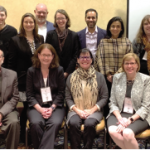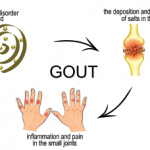Miller-Archie et al. set out to determine whether dust exposure and PTSD are associated with an increased risk of systemic autoimmune disease in a 9/11-exposed cohort not included in previous studies of members of the Fire Department of New York and whether this association differs between 9/11 responders and community members.
Autoimmunity on the Rise in the U.S.
NEW YORK (Reuters Health)—The prevalence of antinuclear antibodies (ANA) in the blood of U.S. adolescents and adults has increased over the past 30 years, signaling a rise in autoimmunity, researchers say. “It is not known if these same increases are occurring in other parts of the world, but because ANA are associated with many autoimmune…

Finding Opportunity Through Challenge: Q&A with Vaneet K. Sandhu, MD, FACR, RhMSUS
The COVID-19 global pandemic is forcing telemedicine-only connections with patients and bringing existing rheumatology research to a standstill. However, these challenges are spurring opportunity and innovation, according to Vaneet K. Sandhu, MD, FACR, RhMSUS, director of rheumatology clinical operations at Riverside University Health System and associate fellowship program director in rheumatology at Loma Linda University…

CSE Award Provides Financial Support & Creates Practice Community for Recipients
Investing in rheumatology training is essential to building a strong and capable workforce. Clinician educators are responsible for developing educational programs, instructing rheumatologists to meet accreditation standards and promoting an atmosphere of quality care for patients. Although clinician educators play a critical role in attracting the next generation of rheumatology professionals, faculty pursuing careers as…

New Study Identifies How Big a Role Diet Plays in Hyperuricemia
Living like a king has its price. And while kings and queens are primarily something of yesteryear, the vast majority of those living in reasonably wealthy nations can now live like kings. Now, back to that price. Gout, once known as the disease of kings, has been around at least since the time of the…

How to Leverage Patient-Reported Outcomes to Improve Care for SLE Patients
A recent study reinforces the growing understanding that the fatigue many SLE patients experience should be considered a lupus symptom. Researchers found that using patient-reported outcomes to identify type 2 symptoms of SLE may improve patient communication, understanding and overall care…
Hundreds of Providers Use RISE for 2019 QPP Reporting
Hundreds of rheumatology providers are using RISE registry data collected from their EHRs over the past year for required 2019 federal reporting.
COVID-19 Pandemic Leads Big Drugmakers to Hit Pause on Clinical Trials
(Reuters)—U.S. drugmakers Eli Lilly and Co. and Bristol Myers Squibb said they are delaying the start of new clinical trials in part to free up doctors and healthcare facilities to deal with the surge in patients infected with the new coronavirus. Lilly and Bristol are the biggest drugmakers yet to announce clinical trial delays in…
A Combined Immunosuppressive Regimen for ILD MDA5-Positive Dermatomyositis
Interstitial lung disease accompanied by anti-melanoma differentiation-associated gene 5 positive dermatomyositis is often rapidly progressive and associated with poor prognosis. In this study, a combined immunosuppressive regimen of high-dose glucocorticoids, tacrolimus and intravenous cyclophosphamide proved more effective than treatment with high-dose glucocorticoids and stepwise addition of an immunosuppressant in a historical control group.
Changes & Additions to RISE Measures in 2020
Using RISE? Check out the updates for 2020, including five new measures available only through the RISE registry.
- « Previous Page
- 1
- …
- 19
- 20
- 21
- 22
- 23
- …
- 125
- Next Page »